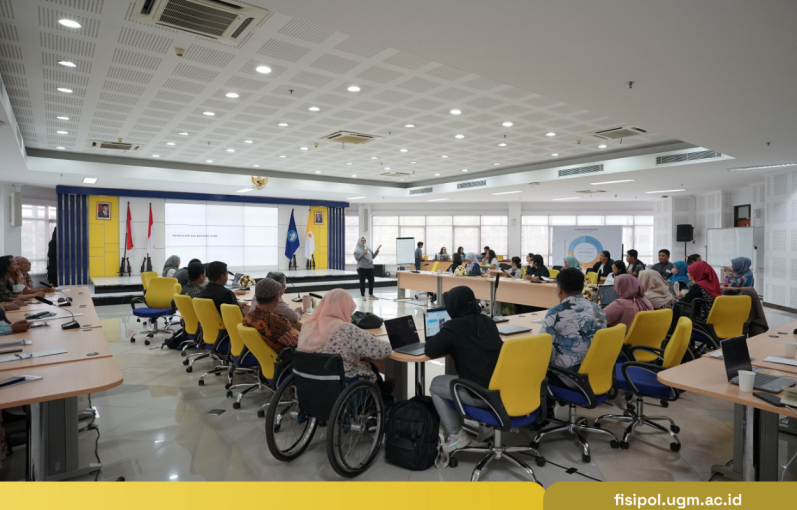
Yogyakarta, August 27, 2024─The Social and Citizenship Inclusion Study Unit (INKLUSI) at Fisipol UGM in collaboration with ‘Aisyiyah, the Indonesian Family Planning Association (PKBI) DI Yogyakarta, the Sasana Inklusi and Disability Advocacy Movement (SIGAB) Indonesia, and the Yakkum Rehabilitation Center (PR) held the Yogyakarta Inclusion Forum on Tuesday (27/8) in the Fisipol UGM Auditorium. This forum brought together various stakeholders, including civil society organizations, researchers, and community members, to discuss the importance of equal citizenship and inclusive development as prerequisites for realizing an inclusive society in Indonesia.
The event was held because marginalized groups face significant challenges to equal citizenship and inclusive development. Discriminatory policies at the national and local levels often perpetuate marginalization, while social, cultural, and economic systems further influence how these groups are treated in everyday life.
The complex interweaving of political processes and social systems in different regions deepens the problem of marginalization in Indonesia. Unfortunately, knowledge production on these issues has not been sufficiently sensitive to its complexities. This gap highlights the need for an evidence-based approach to addressing marginalization, where the lived experiences of marginalized individuals are connected to fieldwork, data, and policymaking.
The Yogyakarta Inclusion Forum was designed to address these challenges, which is to create a platform for dialogue and collaboration. One of the main objectives of the forum is to disseminate research findings conducted by the FISIPOL UGM on the issue of Gender, Disability, and Social Inclusion (GEDSI), exclusive policymaking processes, and public attitudes towards marginalized groups in Bantul and Yogyakarta. This dissemination is crucial to raising awareness and understanding of the challenges faced by these groups.
In addition, the forum facilitated discussions to map collective responses to GEDSI issues in Bantul and Yogyakarta. Participants were encouraged to submit policy recommendations to local governments, ensuring that the voices of marginalized communities are heard in decision-making processes.
In conclusion, the Yogyakarta Inclusion Forum is a significant step towards addressing the complexities of marginalization in Indonesia. By facilitating dialogue, sharing knowledge, and advocating for evidence-based policies, the forum aims to contribute to the realization of an inclusive society where all individuals, regardless of their background, can thrive.
